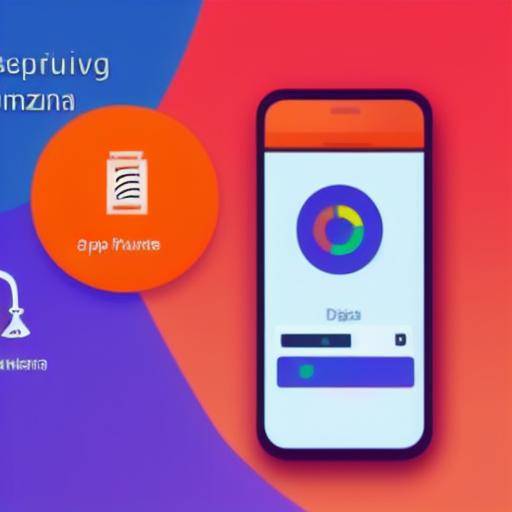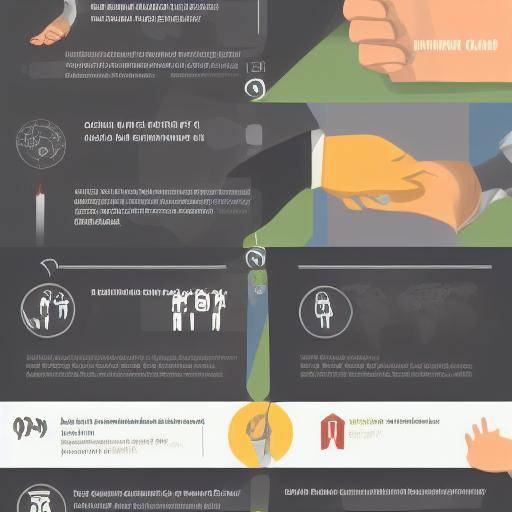
The importance of reviewing your credit report regularly is critical in managing your financial health. Through constant monitoring, control and evaluation, you can ensure responsible management of your finances and make the right decisions to ensure your long-term economic stability. In this article, we will thoroughly explore the relevance of this process, its implications and how your credit situation can positively affect.
Introduction
Understand the health of your credit history
When it comes to your finances, transparency and knowledge are key. One of the fundamental pillars to maintain a healthy credit history is the constant monitoring of your credit report. This report is a detailed record of your credit history, including loans, credit cards, payments, and any relevant financial behavior. When checking regularly, you can detect possible errors, identify fraudulent activity, and make sure your credit profile accurately reflects your financial habits. In this sense, the control and evaluation of your credit report are essential tools to keep you informed and protected.
What does the monitoring, control and evaluation of the credit report imply?
Monitoring, monitoring and evaluation of the credit report represents a continuous process that encompasses the periodic review of your credit history, the detailed analysis of its components, and the adoption of corrective measures where necessary. These practices allow you to identify and address potential discrepancies, as well as detect early warning signs that may adversely affect your credit. In addition, they give you the opportunity to evaluate your financial progress and make informed decisions to improve it.
History and Background
Origins and evolution of credit report
The concept of credit report has its beginnings in antiquity, when commercial transactions were based on trust and reputation. Over time, more formal systems were developed to register and share credit information. An important milestone in the evolution of credit reports was the creation of credit reporting agencies in the nineteenth century, which were responsible for collecting and maintaining financial records.
Development and transformation of financial monitoring
Financial monitoring has experienced significant developments with the advancement of technology and globalization. Digital tools and online platforms have facilitated access to credit information, allowing consumers to review their reports in a timely and efficient manner. This change in accessibility has put control into the hands of individuals, empowering them to make informed decisions and protect their credit history.
Relevant cases in the history of financial control
Financial control has been an issue of interest throughout history, especially in times of economic crisis or significant regulatory changes. Examples such as the 2008 financial crisis, which highlighted the importance of effective financial control at the macroeconomic level, have impacted individual perception and credit control practices. These events have contributed to greater awareness of the importance of constant evaluation of personal financial health.
Current importance of monitoring, control and evaluation of credit report
In the digital era, the monitoring, control and evaluation of the credit report has gained unprecedented relevance. The growing sophistication of financial practices, the proliferation of online transactions, and increased exposure to cyber risks underline the critical importance of being aware of your credit history.
Analysis in Deep
Benefits of monitoring, control and evaluation of credit report
The constant monitoring of your credit report gives you a number of significant benefits. First, it allows you to identify and correct errors that may negatively affect your score, which in turn can affect your ability to access loans or credit cards in the future. In addition, it helps you to detect and address in a timely manner possible fraud or suspicious activity in your credit history, protecting you from adverse financial consequences. Constant control gives you the tranquility of being aware of your credit situation, which allows you to make informed decisions and be prepared to respond to unexpected changes in your credit profile.
Challenges and considerations when monitoring your credit report
Although the monitoring, control and evaluation of the credit report offers many benefits, it also presents challenges and important considerations. One of the common challenges is managing the large amount of information contained in a credit report, which can be overwhelming for many consumers. Moreover, the interpretation of certain technical aspects of the report could be complex, underlining the importance of having adequate resources and guidance to fully understand the content of the report. Finally, ensuring that the information contained in the report is accurate and up-to-date requires constant and diligent attention.
Current trends in financial monitoring
Financial monitoring has experienced significant progress in recent years, particularly with the implementation of digital tools and platforms that facilitate access to credit information. The integration of automatic notifications on changes in credit report, trend analysis and comparisons with historical credit scores has improved the ability of consumers to stay informed and take preventive action. In addition, technology has allowed early detection of potential fraud or suspicious activity, providing consumers with greater tranquility in terms of the security of their credit history.
Comprehensive review
Practical applications for monitoring, monitoring and evaluation of credit report
Monitoring, monitoring and evaluation of the credit report has practical applications in a wide range of financial situations. From applying for a mortgage loan to establishing lease contracts, a solid credit health may have a significant impact on a person's ability to achieve their financial goals. In addition, the constant control of the credit report is essential to identify and resolve problematic situations, such as report errors or frauds, before they cause significant damage.
Best practices and approaches to evaluating your credit history
Within the context of monitoring, monitoring and evaluation of the credit report, there are best approaches and practices to optimize this process. Establish automatic alerts for changes in the credit report, review each section of the report regularly, and keep a detailed record of your financial transactions are some of the practices that can improve the effectiveness of your credit monitoring. Also, having a clear understanding of the key aspects that influence your credit score, such as the payment history, the use of credit, and the age of your accounts, will allow you to accurately evaluate your credit health.
Comparative analysis of methods and approaches
Within the scope of financial monitoring, there are multiple methods and approaches that consumers can use to evaluate their credit history. Using online monitoring tools, hiring identity protection services, and periodic review of credit reports are popular options. Each method presents its own advantages and limitations, so it is crucial to consider carefully what is best aligned with your individual needs and preferences.
Detailed analysis of pros and cons
When evaluating the different options for monitoring, control and evaluation of the credit report, it is important to carefully consider the pros and cons associated with each method. For example, online monitoring services are often convenient and offer real-time updates, but may involve ad hoc costs. On the other hand, the manual review of the credit report can give you a more detailed understanding of your financial situation, but it requires a greater commitment of time and effort. To weigh these factors will allow you to select the option that best suits your needs and priorities.
Practical Tips and Recommendations
Effective strategies for monitoring, monitoring and evaluation of credit report
To maximize the effectiveness of monitoring and control of your credit report, effective strategies are essential. Establish a regular schedule to review your credit report, document any discrepancy or suspicious activity, and keep an open communication with credit reporting agencies are key actions. Also, being aware of the factors that influence your credit score and adopting strategies to improve them can strengthen your long-term credit health.
Detailed steps to address discrepancies in your credit history
When you identify discrepancies in your credit report, it is essential to address them in a timely and effective manner. Contact the corresponding credit reporting agency, submit documentation that supports your claim, and make prompt follow-up to the correction process are essential steps to resolve these situations. Furthermore, keeping detailed records of your interactions with credit agencies will give you greater clarity about the status of your claims.
Proactive approaches to maintain a solid credit history
Maintaining a solid credit history requires a proactive and deliberate approach. Some best practices to achieve this goal include making timely payments, maintaining low credit balances, and avoiding excessive opening of new credit lines. Also, be aware of possible signs of fraudulent activity and take measures to protect your personal and financial information will help you preserve the integrity of your credit history.
Industry Perspectives and Expert Reviews
Vision of experts on the future of credit monitoring
Financial experts point out that the monitoring, control and evaluation of the credit report will play an increasingly critical role in the lives of consumers. With the growing complexity of financial systems and the constant evolution of cyber threats, staying informed and protected in the credit field becomes a fundamental priority. In this regard, the implementation of innovative technologies and automatic monitoring solutions are proving to be crucial trends for the future of financial monitoring.
Analysis of trends and forecasts in the field of credit control
Current trends indicate that credit control will continue to gain relevance in the financial landscape. The growing awareness of the importance of a healthy credit history and the need for protection against fraud and identity theft will boost the widespread adoption of monitoring and control practices. At the same time, advances in monitoring technologies, such as the use of artificial intelligence and predictive analysis, are expected to provide consumers with more powerful tools to keep track of their credit history and make informed decisions.
Case Studies and Practical Applications
Real cases highlighting the importance of financial monitoring
The study of real cases provides concrete examples of how the monitoring, control and evaluation of the credit report can impact the lives of consumers. From the early detection of errors in the credit history that might have affected the approval of a loan, to the identification of fraudulent activity that might have had devastating financial consequences, these cases serve as a reminder of the importance of being aware of your credit history.
Practical applications in different financial situations
Monitoring, control and evaluation of the credit report has practical applications in a variety of financial situations, from the management of existing debts to the planning for the acquisition of a new credit. Examples that include borrowing for housing, job search, and credit card assessment highlight how a solid credit record can be a crucial asset at key moments of life.
Future Trends and Predictions
Emerging trends in credit monitoring
Current trends suggest that credit monitoring will move towards greater automation and customization. Online monitoring platforms and services will provide more sophisticated tools, such as personalized alerts and predictive analysis, to help consumers become more informed about their credit situation. In addition, the integration of artificial intelligence and automatic learning is expected to provide a deeper and more detailed understanding of individual financial behavior patterns.
Predictions on Challenges and Opportunities in Credit Monitoring
While technology is offering significant advances in credit monitoring, it also presents potential challenges and risks. The security of personal and financial information is a recurring concern, especially in an increasingly interconnected digital environment. The protection against exposure to cyber risks and the guarantee of the accuracy and privacy of personal data will be fundamental aspects to address in the future of financial monitoring.
Conclusion
In short, reviewing your credit report regularly through ongoing monitoring, control and evaluation is a key practice to maintain optimal credit health. Being aware of your credit history, identifying possible errors, and detecting fraudulent activity, you can make informed decisions and protect your long-term financial health. Keeping abreast of trends and predictions in the field of credit monitoring will allow you to adopt a proactive and prepared posture to address the challenges and opportunities that will arise in the future.
Frequently asked questions
How often should I review my credit report?
Reviewing your credit report at least once a year is a recommended practice. However, in situations where you are planning a major financial transaction, such as buying a home or car, it is advisable to review your report more often to detect potential discrepancies or problems that may affect your ability to get the best loan or interest rate.
What are the costs associated with monitoring my credit report?
Most credit reporting agencies offer a free annual review of the credit report. In addition, there are online monitoring services that offer paid subscriptions with advanced options that include automatic alerts, detailed analysis and personalized advice. Before selecting a service, it is advisable to investigate and compare the options available to find the one that best suits your needs and budget.
What should I do if I find a mistake in my credit report?
If you discover a mistake in your credit report, it is crucial to address it immediately. Contact the corresponding credit reporting agency to report the error and provide the necessary documentation to support your claim. Keeping a detailed record of your interactions with the agency will help you track the correction process and make sure the error is resolved in a timely manner.
How can I protect myself against identity theft and fraudulent activity?
To protect against identity theft and fraudulent activity, it is essential to keep your personal and financial data safe. Avoid sharing confidential information on unsafe platforms, use strong and unique passwords for your accounts, and keep an eye on possible signs of suspicious activity, such as unrecognized transactions in your credit history.
What is the difference between the monitoring, control and evaluation of the credit report?
Monitoring refers to regular observation of your credit history to detect changes, alerts and possible risks. Control involves the active management of your credit history, corrective action and fraud protection. The evaluation, for its part, involves the detailed review and analysis of your credit report to understand your financial situation comprehensively and make informed decisions.
Will my credit score be affected by checking my credit report frequently?
No, checking your credit report regularly won't adversely affect your credit score. In fact, this practice is recommended and can help you detect and correct errors that could affect your credit score. Being proactive in monitoring your credit history can help maintain a healthy score and protect your financial situation.
What is the importance of reviewing my credit report if I'm not looking for a loan at the moment?
Although you are not in the process of applying for a loan, checking your credit report regularly remains crucial. Identifying and correcting errors, detecting suspicious activities, and keeping track of your financial situation gives you the tranquility of being prepared for future financial transactions. In addition, constant monitoring allows you to implement proactive strategies to maintain a long-term solid credit history.
In conclusion, the monitoring, control and evaluation of the credit report is not only essential to protect your financial health, but also to make informed and proactive decisions in managing your personal finances. By being informed and prepared, you can mitigate risks, detect potential problems before they become major drawbacks, and maintain a healthy credit history. By adopting consistent practices of review and management of your credit report, you are strengthening your position to face financial challenges and take advantage of future opportunities.






















































